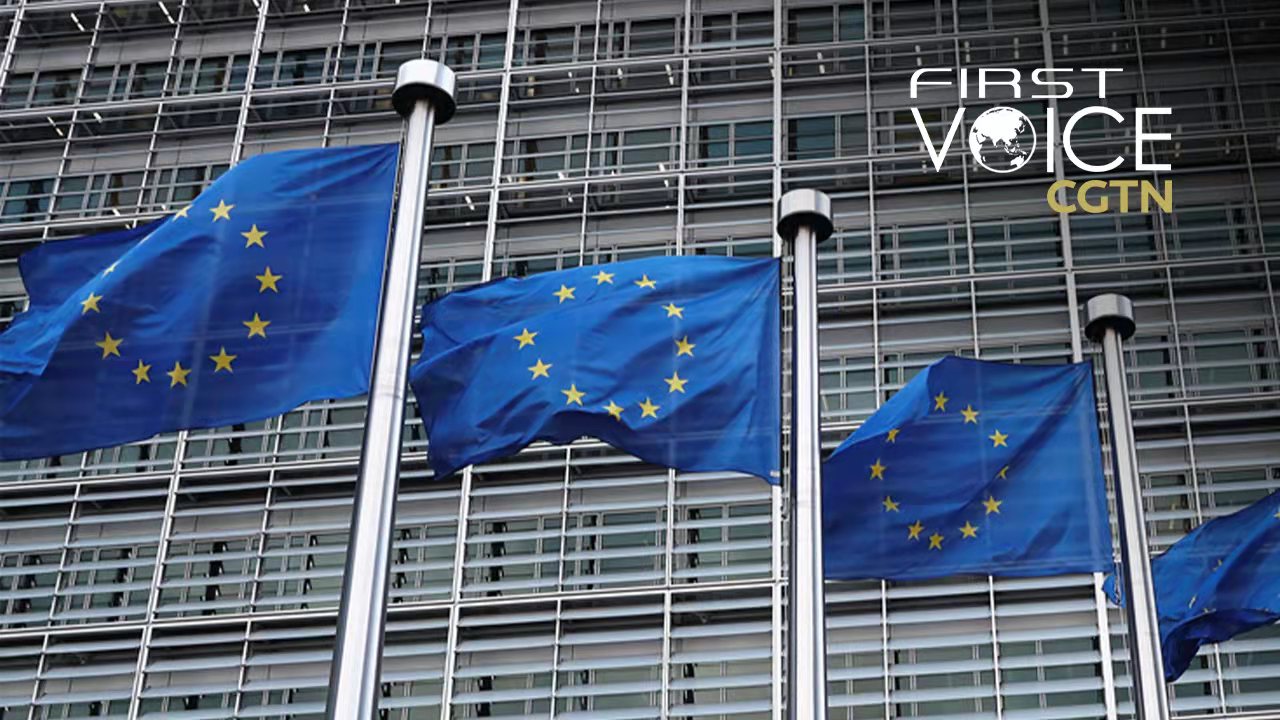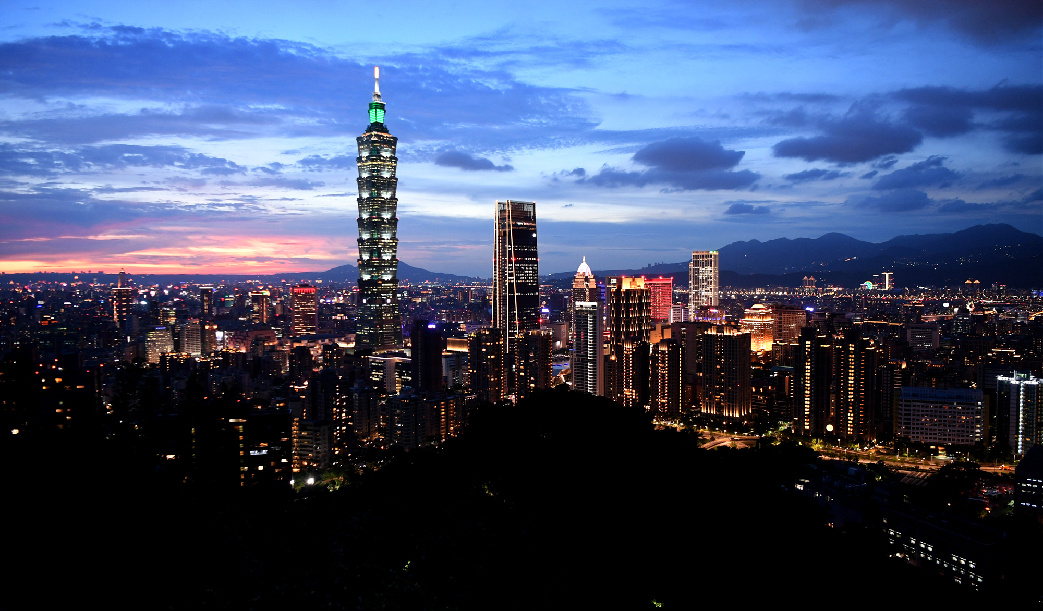
Editor's note: CGTN's First Voice provides instant commentary on breaking stories. The daily column clarifies emerging issues and better defines the news agenda, offering a Chinese perspective on the latest global events.
Shouting its "defending democracy" and fighting against "foreign" interference, the EU Parliament is acting the other way round. On Wednesday, a European Parliament delegation paid an "official" visit to China's Taiwan. The seven-member group said in its statement that it looks forward to "fruitful discussions on the defense of democracy, freedom, rule of law, and respect for human rights" in its three-day visit.
Amid ratcheted-up tensions between the Chinese mainland and the Taiwan region, the move – as opposed to what is claimed in the EU's statement – is instead damaging democracy. The EU Parliament, as the so-called bastion of human rights, risks Taiwan people's rights to stability and peace for its political gains.
The Chinese central government has reiterated that reunification is a historical inevitability. The mainland has the economic and military capacity for this end – top U.S. military officer General Mark Milley also admitted this fact. "The Chinese are clearly and unambiguously building the capability to provide those options (use of force) to the national leadership if they choose at some point (to achieve reunification) in the future," Milley told the Aspen Security Forum.
The question is thus never about whether a reunification will become a reality, but the timing for it – at which point the breakthrough, when China is facing multiple missions, will be in the best interests of the nation. Any breach of the one-China principle could accelerate the process, pushing the mainland to make a move on the Taiwan authorities.
Europe is clear about it. But for EU Parliament, politics apparently carries much more weight than the stability in the region thousands of kilometers away from it. For decades, the EU has been relying on Washington for security. It has no intention to anger Washington, which has been playing the Taiwan card to contain China's rise. Dancing to the U.S.'s tune against China is a matter of political correctness for certain countries within the EU.

Night view of Taipei, southeast China's Taiwan. /Xinhua
Night view of Taipei, southeast China's Taiwan. /Xinhua
In addition, in spite of former U.S. President Donald Trump's "America First" doctrine, traditional liberal beliefs turn out to be panacea in binding the Western bloc on the united front against countries with different ideologies and political institutions.
On the Taiwan question, displaying support for independence separatists – a gesture for "democracy" – is more important than real democracy and freedom in the region. This is why certain European countries and the U.S. have been intensifying interactions with the Taiwan authorities in recent months. Wednesday's visit comes after French senators' trip to Taipei last month and the Democratic Progressive Party (DPP) officials' journey to Slovakia and the Czech Republic.
The EU Parliament wants to shape and consolidate its image as a bastion of liberal beliefs, but its move is jeopardizing the real democracy. The MEPs' gesture will never change the outcome of reunification, but could send a wrong signal to anti-Beijing forces.
Shouting democracy, the EU Parliament is encouraging independence separatists and could create a false image to the DPP that it has the West's backing when tensions escalate across the Taiwan Straits. This could directly result in the DPP's miscalculations, making its dangerous provocations on the one-China principle more likely.
Will the West give real support to the DPP?
Apparently no.
To begin with, the U.S.-led Western bloc is clear about China's determination and capability for reunification. Judging from their attitude on Syria, Afghanistan and Iraq, there's little likelihood the U.S. and the EU will sacrifice their people's well-being for what is ultimately a domestic affair of China.
In addition, economy matters. China overtook the U.S. as the EU's largest trading partner in 2020. Further provocations from Europe's side will inevitably fray ties with China, and thus put their bilateral trade in jeopardy. Admittedly, semiconductors produced in the Taiwan region account for a large share of the global total, making some argue that closer economic relations with the DPP can somehow offset the negative impacts. But one should not forget, ratcheted-up tensions across the Taiwan Straits could mean the West's economic activities, with either the mainland or Taiwan, could vanish.
By sending an "official" delegation to the Taiwan region, the EU Parliament is desperately bragging its image as a pioneer in protecting democracy. The move itself is a harm to democracy and an irrefutable example of foreign intervention in China's domestic affairs.
Touting democracy, the EU Parliament may need to think twice about the consequences and whether it can afford them.
By Liu Jianxi
(If you want to contribute and have specific expertise, please contact us at opinions@cgtn.com.)

